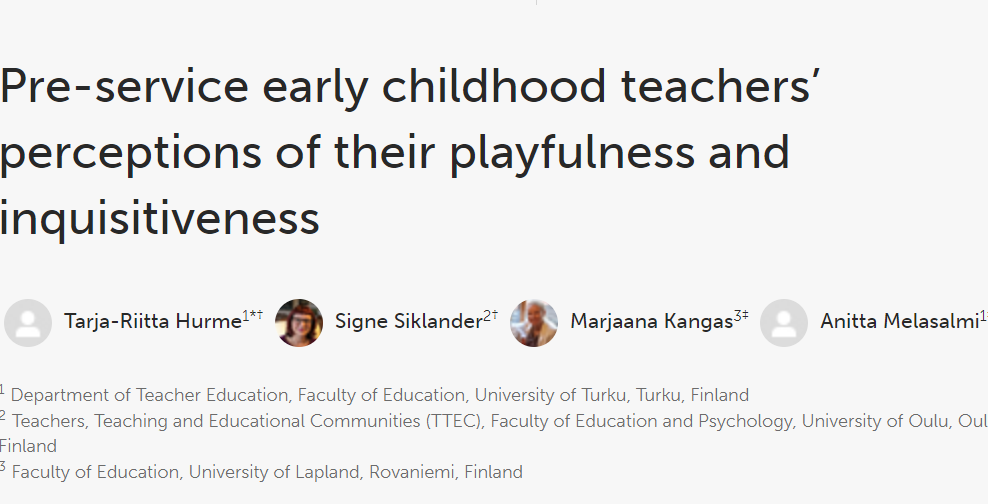One of our studies underscores the critical role of playfulness in early childhood education, not just for the children but as a core component of the educators’ pedagogical approach. The findings of the research reveal that while playfulness and inquisitiveness are interconnected attributes that are present in pre-service early childhood teachers, there is a need to promote these qualities more effectively in educational programs in the development of a teacher’s professional skills.
Abstract of the study:
“Recognizing one’s own playfulness is important for early childhood education (ECE) teachers, who are responsible for organizing and implementing child-initiated pedagogy in ECE centers. Playfulness research has focused on children’s play and playfulness in workplaces, but playfulness as a part of ECE teachers’ pedagogical and adaptive expertise is rarely studied. Using multiple playfulness and innovativeness instruments, first- and third-year pre-service ECE teachers’ (n = 208) self-reported playfulness and inquisitiveness was examined. Correlation coefficients and Student t-tests were performed to examine the connections between playfulness, the facets of playfulness, and inquisitiveness, also between the first- and third-year pre-service ECE teachers. The results of the study show that playfulness, the facets of playfulness and inquisitiveness are connected. The results also show that although there were no statistically significant differences among the first- and third-year pre-service ECE teachers’ playfulness and inquisitiveness, they had different orientations towards playfulness. Additional research is needed to explore how in-service teachers and pre-service teachers can learn playfulness and inquisitiveness as a part of their pedagogical expertise. The results are implementable for designing, developing and evaluating ECE teacher education.”

Hurme, T-R., Siklander, S., Kangas, M. & Melasalmi, A. (2023). Pre-service early childhood teachers’ perceptions of their playfulness and inquisitiveness. Frontiers in Education, 8, 1102926.
